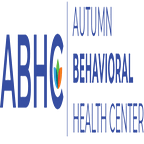Exploring Different Types of Therapy Offered at Addiction Treatment Center.
At an Addiction Treatment Center in Columbus Ohio you can expect to find a variety of therapy options aimed at helping individuals overcome substance abuse and addiction. These therapy approaches are typically tailored to meet the unique needs of each patient and may include:
1. Individual Therapy: This form of therapy involves one-on-one sessions between a therapist and a patient. It allows for personalized attention, confidentiality, and a focus on the individual’s specific challenges, triggers, and goals. Cognitive-Behavioral Therapy (CBT) and Motivational Interviewing (MI) are common approaches used in individual therapy for addiction treatment.
2. Group Therapy: Group therapy involves sessions led by a therapist with a small group of individuals who are facing similar challenges with addiction. It provides a supportive and empathetic environment where participants can share their experiences, provide feedback to others, and gain insights from their peers.
3. Family Therapy: Addiction affects not only the individual but also their family members and loved ones. Family therapy aims to improve communication, address conflicts, and promote healing within the family unit. Involving family members in the treatment process can strengthen the support system and reduce the risk of relapse.
4. Holistic Therapy: Holistic therapies take a comprehensive approach to address the mind, body, and spirit. These may include practices like yoga, meditation, mindfulness training, art therapy, and equine-assisted therapy. They can help patients manage stress, improve emotional well-being, and develop healthier coping mechanisms.
5. Dual Diagnosis Therapy: Many individuals with addiction also struggle with co-occurring mental health disorders like depression, anxiety, or bipolar disorder. Dual diagnosis therapy addresses both addiction and mental health issues simultaneously to achieve better treatment outcomes.
6.Trauma-Informed Therapy: Some individuals turn to substance abuse as a way to cope with past trauma. Trauma-informed therapy helps patients explore and process these traumatic experiences in a safe and supportive environment.
7. Relapse Prevention Therapy: Learning how to prevent relapse is crucial for maintaining long-term sobriety. Relapse prevention therapy equips individuals with coping strategies, stress management techniques, and a deeper understanding of triggers to avoid potential setbacks.
8. 12-Step Facilitation: Based on the principles of Alcoholics Anonymous (AA) and Narcotics Anonymous (NA), this therapy incorporates the 12 steps to help individuals work through their addiction and build a supportive network.
9. Medication-Assisted Treatment (MAT): In some cases, medications may be prescribed to assist with addiction recovery, particularly for opioids or alcohol dependence. MAT is often combined with counseling and behavioral therapies for comprehensive treatment.
It’s important to note that different addiction treatment centers may offer varying combinations of these therapies. When seeking an Addiction Treatment Center in Columbus Ohio it’s crucial to research and find one that aligns with your specific needs and preferences. Additionally, consider reaching out to professionals or treatment centers directly to inquire about their available therapy options and how they can best support your journey to recovery.
